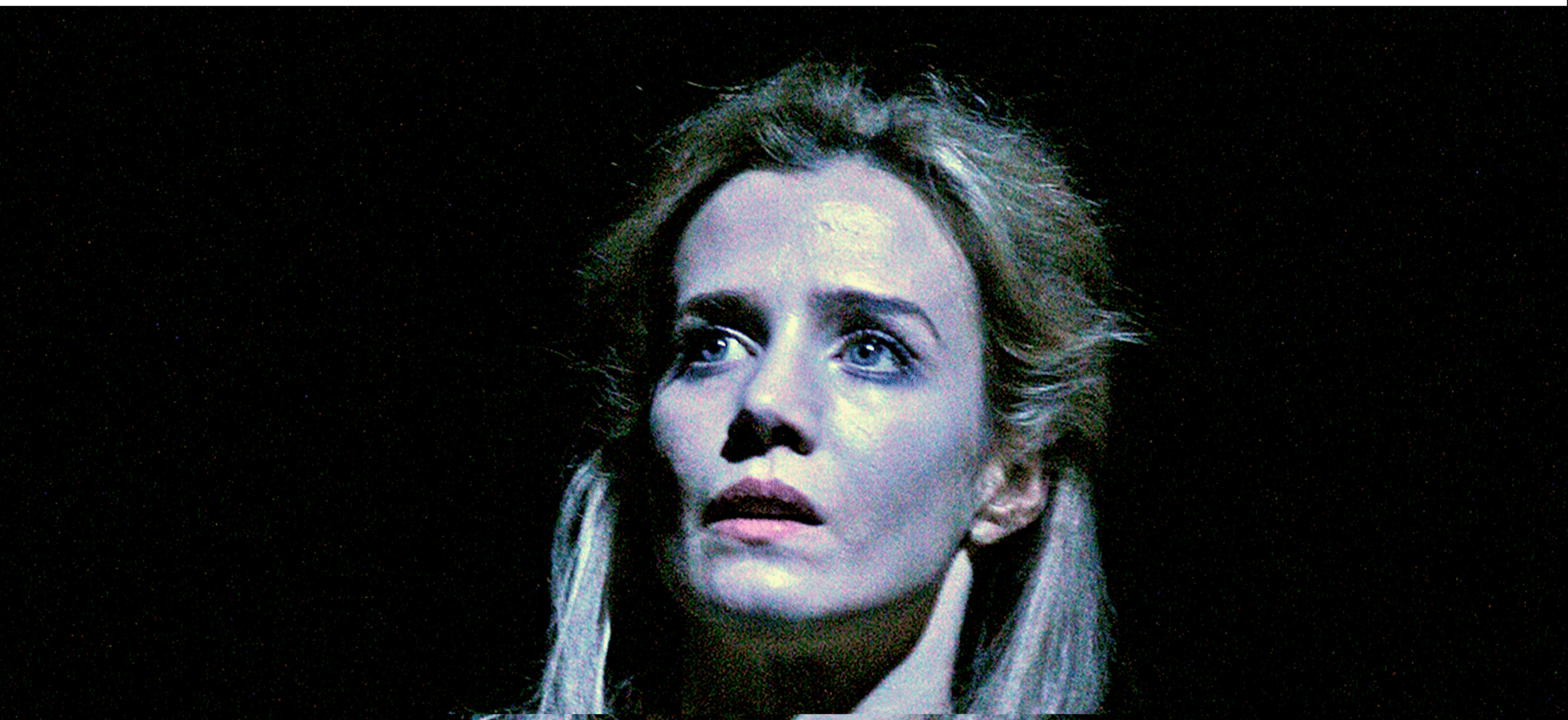Beckett Trilogy claws into fragile human condition
The project of performing Beckett is never simple; the complexity and incoherence of his poetic language combined with the simplicity of the minimalist production aesthetic, is no small task. The Royal Court have produced three of Beckett’s shorter works played consecutively, originally performed by Beckett’s own muse Billie Whitelaw, who has tutored Lisa Dwan for this tour-de-force one-woman-show. Under the direction of the acclaimed Walter Asmus, the production excels in the task of portraying Beckett at his finest, in a disturbingly emotive performance of his later works.
Beckett’s back to back trilogy of plays lasts for just under an hour. The three pieces are ostensibly unrelated, yet all grapple with themes associated with Beckett, ultimately relating to the human condition. Shortly after being seated the audience are plunged into pitch blackness (even the fire escapes are blacked out) and embark on a journey to the dreamlike world of Beckett, where the void becomes only too real.
The initial darkness is penetrated by the image of a disembodied, spot-lit mouth; it is the only thing visible, suspended eight feet above the stage. The mouth spouts a stream-of-consciousness monologue just as Beckett intended; at the ‘speed of thought’. Simultaneously, the audience attempts to grip onto any form of coherence, to attach any meaning to the sounds projected. As Dwan voices the flow of almost indeterminable words it is impossible to avoid clinging onto the character’s denial of her subjectivity, revealed through her clear repeated utterances of “What? Who? No, she!” The random and erratic form of the monologue reveals Beckett’s preoccupation with the unconscious and the music of language.
To follow the deep existential angst of Not I, a ethereal, ghostly figure May steps onstage, presented by Dwan as a middle-aged woman, wearing an old ball gown in ‘tatters’ for Footfalls. The chilling ‘footfalls’ from which the piece takes its name, as May paces anxiously across the stage, resemble the sound of a clock, like time ticking away. This sound is accompanied by May’s dialogue with her sick mother, who the audience can only hear and not see. May’s resentment towards the life in front of her reiterates her dissatisfaction with existence, something which is ever present in Beckett and which sparks a deeply emotional response in the audience.
Rockaby continues the metronomic sense of pacing and the elapsing of time in the mechanical rocking of a woman who appears to be in dialogue with her own unconscious. Her speech is interrupted as she persistently demands something, which seems to be a chilling lullaby from her own recorded voice. As the character rocks back and forth in her chair she subverts the conventional understanding of a lullaby as the musical voice tells of futile attempts to find ‘another living soul’. The piece ends with the motionless character as the chair continues to rock, seemingly rocked into death.
This trilogy does not make for easy watching but succeeds as a sublime portrayal of Beckett’s exploration into the human condition. Asmus keeps faith with Beckett’s intentions for direction, guiding us to explore deep, existential questions, and Dwan outstandingly rises to the challenge of playing these three beautifully enigmatic characters.
Not I/Footfalls/Rockaby begins its national tour this autumn, following sell-out runs at the Royal Court and Duchess Theatre. It plays at Cambridge Arts Theatre (9-13 September), Birmingham REP (16-20) and The Lowry, Salford (23-27 September).

Comments